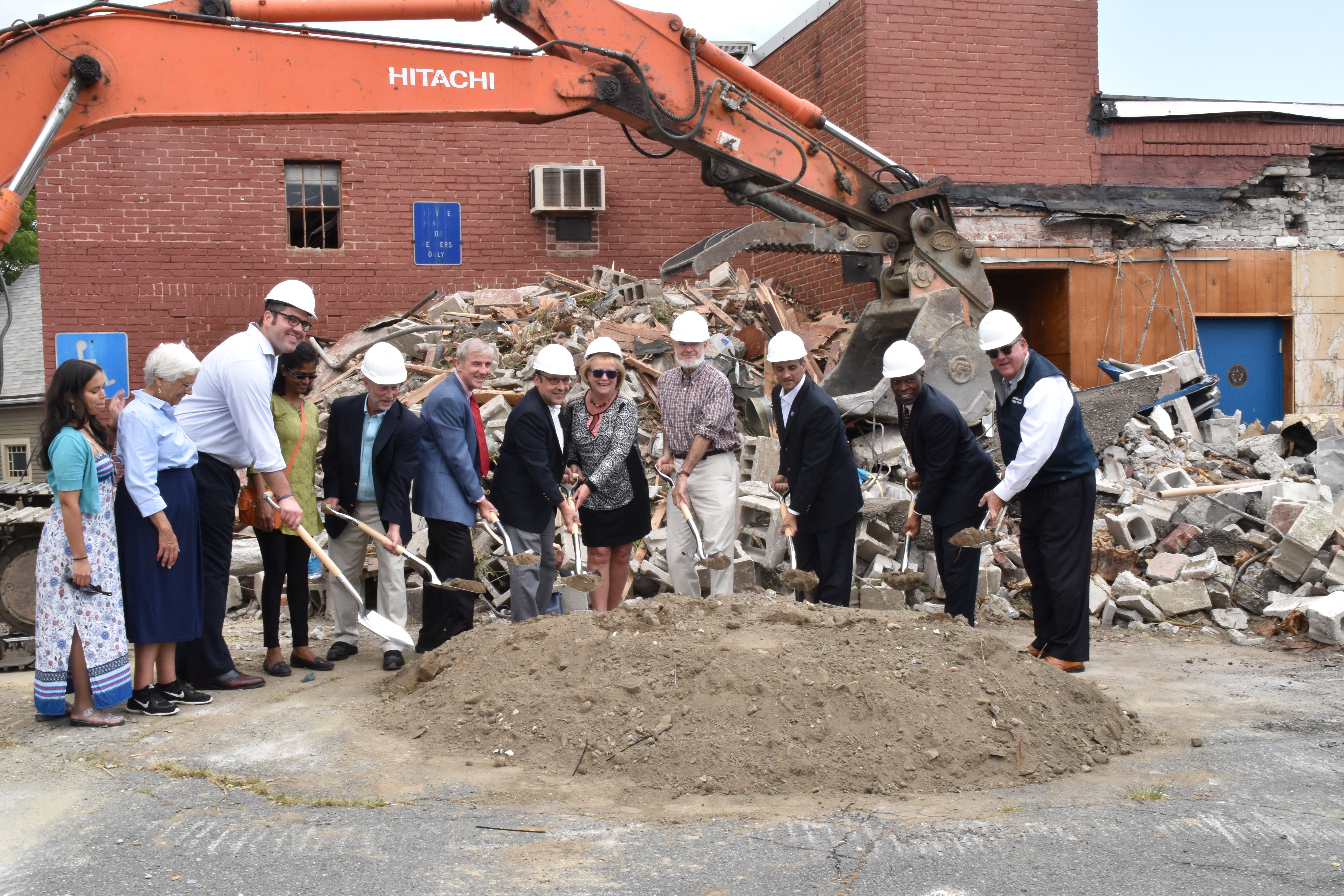The shy New England sun shone brightly this past Saturday in Somerville for the groundbreaking ceremony of the 11 condominium development at 163 Glen St.
Since its inception almost three and half years ago, Somerville Community Corporation and the City have worked tirelessly to acquire the funds to support the construction of the condominiums. Apart from the traditional construction load from the East Boston Savings Bank, the development will be financed exclusively by the City of Somerville, with almost a million dollars coming from the Community Preservation Act, said Danny LeBlanc, CEO of SCC.
The construction features an eco-friendly, adaptive reuse of the historic American Legion Post Building in Somerville’s first affordable housing development in nearly a decade. Eight of the 11 condominiums will be dedicated to affordable housing and will target people who fall in the 80 percent, 100 percent and 110 percent bracket of the area median income.
“Let’s celebrate this great occasion because eight families or people are going to have their lives impacted positively. This is their opportunity to own and remain in a great neighborhood,” said Mayor Curatone.
Besides the eight lucky families given the opportunity to remain in Somerville, thousands of other families are fighting paycheck to paycheck to remain in their increasingly more expensive homes.
This situation was made painstakingly clear this past January when the city held a ribbon cutting, introducing 34 new affordable housing condos available for rent. While 34 families were excited and overjoyed to remain in Somerville at an economical price, the 3,500 people left on the waiting list were turned away.
“The challenge, and it’s painful at times, is we’re always really happy for the families that get into the housing, but it’s sort of sobering to see how many people didn’t get in,” said LeBlanc, who, in addition to heading the non-profit SCC, has also been a lifelong resident of Somerville. “It kind of tells you how much of an uphill climb we still have,” he added.
Somerville is in the midst of a housing crisis, the beginning of which can be traced back to just over a decade ago when the St. Polycarp Men’s Club on Temple Street was transformed into 15 new condominiums. Twelve years later, Somerville is now the sixth most-congested city in the United States.
The median home value in Somerville is $592,900, a 12 percent jump from last year according to the Massachusetts Association of Realtors. But with the median household income of the residents of Somerville stagnant at $54,000, there is an obvious financial gap.
With the congestion growing, “low income” has taken on a new meaning. Families making $100,000 a year or more are suddenly being pushed out of their homes. “The reality is that in a city like Somerville, if you’re not from here, you think, ‘Oh low income people need housing,’ but in fact there are people making $100,000 a year and more who can’t find housing they can afford either,” said LeBlanc
City officials recognize that while repurposing homes is a great way to build community morale, it is not enough to effectively fight the housing crisis. Therefore, the city has additionally established the 100 Homes Project, the inclusionary zoning ordinance and residential exemption to ensure that the residents of Somerville are given every opportunity possible to remain in their home town.
Together, these efforts will help the city meet its goal of creating more that 6,000 units of additional housing by 2030, 1,300 of which will be affordable, said Mr. Curtatone.
David Last, who has lived in Somerville for over a decade, said that while there has been an increase in developments and an increase in prices, he appreciates the efforts the city government has made to maintain the culture and authenticity that drew him and his wife to Somerville in 2006.
“You’ve seen this change in demographics, though in East Somerville you’ve seen less of that, which is nice. It feels a lot more diverse in East Somerville than it does in West Somerville,” said Last.
Developments such as the repurposing of the American Legion Building and the 100 Homes Project are needed now more than ever because they give residents struggling to make ends meet hope that there is a solution to the housing crisis that plagues Somerville.

Leave a Reply
You must be logged in to post a comment.